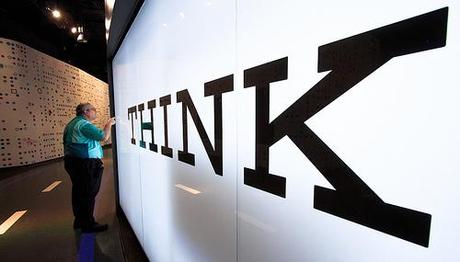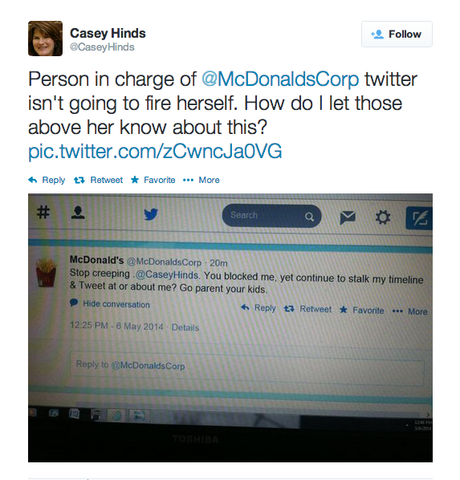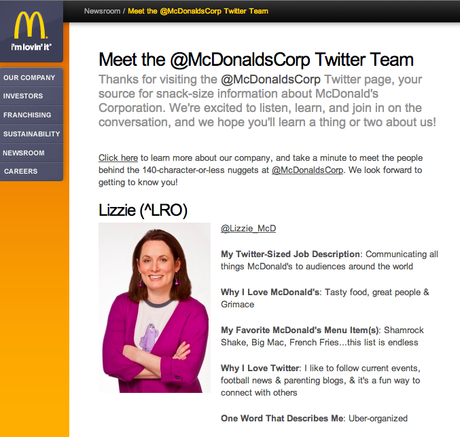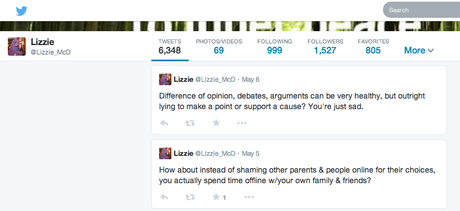 I happened upon a random conversation on Facebook this morning that made me realize that there’s still much for brands and agencies to learn about social media community management.
I happened upon a random conversation on Facebook this morning that made me realize that there’s still much for brands and agencies to learn about social media community management.
The formula for great community management is quite simple. Find someone with a great personality, who loves people, and who understands the goals and objectives of the organization. They must be comfortable living life “out there” on a limb, where what they do and say can be seen, and critiqued, by a peanut gallery that includes senior management, co-workers, customers, prospects, competitors, brand advocates, people who hate your brand, and everyone else on the planet. Oh, and of course, the right person must be smart, able to think on the fly, and be calm and rational in times of great stress.
Totally sounds like a job anyone would want, right?
Community management is the personification of the trenches. It’s a front-line job. It is probably one of the most difficult jobs in the corporate communications realm, but it’s all too easy for senior managers to overlook that tiny detail. All too often, the people we put into these jobs are junior-level people without much experience – and certainly without much experience in the trenches.
Community management is great when everyone is happy, the sun is shining, birds are singing and roses are blooming. But when something bad happens – and it will – the job out in front is hard. It’s also scary as heck to have that kind of responsibility. There have been times when even I’ve been overwhelmed and I’m a senior level marketer and someone very adept at both corporate comms and social media. If it’s possible to overwhelm me, imagine what a junior person must feel like in these situations.
The McDonald’s Twitter Account Fail
The other day, someone who does community management for the McDonald’s corporate Twitter account pulled a bonehead move. She shared something that was probably meant for her personal account, but instead it was tweeted from the corporate account. What she shared wasn’t very nice, definitely snarky and most assuredly rude. Even worse, she then made the mistake of suggesting—from the brand’s corporate account no less—that someone she had an issue with should “go parent your kids.” Not really the kind of messaging appropriate for any brand’s account. Ever.
Of course, the person she tweeted this to already had issues with the brand (which isn’t the topic here), and was outraged by the audacity of this kind of communication coming from McDonald’s. I think that if we are honest, any one of us might be equally as outraged. And she did what any pissed off, connected person would do: she screen captured the exchange and shared it, and it was then picked up by her equally outraged friends. All pretty normal, right?

To her credit, the person manning the McDonald’s account immediately admitted her mistake and took full responsibility for the action. The problem is that that doesn’t make it go away. That one little misstep could be a big deal: and in many instances a mistake not only has the potential to damage a professional reputation of the community manager, it can also have an impact on the reputation of the brand. “This stuff is not a big deal and it always blows over?” — is that what you’re thinking? In the big scheme of things, there are definitely worse things that could happen – online and off. But in many instances, situations like this are a very big deal for everyone involved.
Why Opinions Have No Place in Community Management
My dad likes to say that “Opinions are like a-holes, everybody’s got one” – which is, well, totally true. But the reality is that, when it comes to community management, personal opinions don’t belong. Ever. Unless a brand hires you because of your outrageousness and out-there opinions — that’s a different story altogether. But most community managers aren’t the Howard Stern-ish type and most brands aren’t interested in how you feel about things. They certainly shouldn’t be satisfied with a disclaimer that “your opinions are your own” after you accidentally say something dumb via their account.
When you take on the job of community management—as an employee of an agency or brand or as a freelancer—you need to come to the table knowing that nobody—the brand most of all—cares what you think about religion, politics, social issues and, well, parenting.
You have to be aware that you are a public representative of the brand. In this case, for example, this person was not only working on the McDonald’s corporate Twitter account, she was also publicly introduced on their website as part of their social media team.

There Are Dangers to Being in the Community Management Spotlight
An important part of the equation here, at least to my way of thinking, is self-awareness. When someone is a public face of your company—whether it’s a very large organization or a very small one—they need to be aware that everything they do and say from a personal standpoint is, or can be, viewed as a reflection of the brand as a whole. It’s the nature of the beast.
And it’s where someone like Lizzie, as nice as she might be as a person—and I assume that she’s basically a good person—can be dangerous. She has opinions and isn’t afraid to share them. But as a representative of McDonald’s, she’s an easy and visible target. This is risky, for the employee and the brand. Even things that aren’t really inflammatory, like the tweets below, can be interpreted as such.

How Do You Protect Against Human Error in Community Management?
If you own a business and your name is part of the company name, you’re responsible for everything that happens or is said in the name of that business—even if one of your partners is responsible.. The same is true with your community management team; if your name is “on the door,” you’d best be sure that people are watching everything you say and everything you do. This is especially important when you work with a company that people feel passionately about – either positively or negatively. A brand like McDonald’s, for example, is no stranger to activists.
For Community Managers: as an individual doing community management, the ways you can protect yourself are fairly simple:
- Separate personal from business. Use completely separate platforms for sharing personal content and brand content. This alleviates the chances of a mistake.
- Think before you send. Always, always, always look at what you’re saying, before you hit the “send” button. Make sure it’s something that’s appropriate to post on behalf of the brand as a whole. When you’re manning the front lines of community management for a brand, it’s not important what your personal thoughts are on an issue, it’s about your responsibility to personify the brand in the best manner possible. Always.
- Don’t react under pressure. When you’re involved in a potentially dangerous interaction online, walk away before saying or doing anything. Go find someone else on your team (or phone a friend if no one is nearby), and talk through it before you impulsively say something you might later regret. Don’t let the pressure of the situation compel you to do or say something you might well regret later.
- Get approval. Even after you’ve done that, find a supervisor, describe the situation, and ask for their guidance before you take action. It’s better to do nothing in an inflammatory situation than to do the wrong thing, so take whatever time you need to get it right. And when you can do that with the approval of a supervisor, that’s the route you need to take.
For employers: if you employ people doing social media community management work, there are different to take into consideration. They include:
- Respect your community managers. It’s an enormous job that you’re putting in the hands of your community managers, and the bigger your company, the bigger the responsibility. Always respect the fact that you are putting these people in the trenches, and that their jobs are neither fluffy nor insignificant. They are the front line of your brand, the voices that your customers hear (and sometimes see), and they hold a lot of your overall brand reputation in their hands.
- Training is essential. Regular and ongoing training is absolutely necessary when it comes to your social media community management team.
- Fire drills are essential. Practicing what to do in volatile situations is exponentially more valuable than being reactive. These situations are going to happen; put your people through some drills, and regularly refresh their training through a variety of different scenarios and exercises. This will not only make them better at their jobs in general, but they’ll also be happier and less stressed about the enormous responsibility they deal with on a day-to-day basis.
- Plan for a crisis. Having a social media crisis plan in place is critical. Make sure your social media community managers know to immediately take action when there’s a problem —and what that action should be.
- People are humans. Don’t forget it. Remember that people are only human. Mistakes happen— it’s inevitable—and it’s not the end of the world when they do. If we make things so tough on our community managers that they get the axe when they make a mistake, we’ll quickly find that no one wants to take that job. I wouldn’t blame them in the slightest for feeling that way.
This is an unfortunate situation and I feel for the person involved in this case. As I said before, I’m sure she’s a terrific person and doing a great job overall. This was one misstep—and one that isn’t uncommon. Let’s use these experiences to learn, not as opportunities to throw insults and accusations at one another. Let’s all just get smarter and do better.
What do you think? What have I missed? I’d really love to hear your thoughts on this.
By the way, if you’re interested in learning more about social media crisis planning, join my friend Ann Marie van den Herk, a PR pro and author of Social Media Crisis Communications: Preparing for, Preventing and Surviving a Public Relations Fail, this coming Tuesday, May 13th, for a free webinar.
Other resources on this topic:
Social Media Examiner: How to Respond to a Social Media Crisis
V3 Blog: A Social Media Crisis Plan, Yes, You Need One
photo credit: Scott Smith (SRisonS) via photopin cc
Social Media Community Management Basics: Leave Your Opinions at Home is a post from: V3 Kansas City Integrated Marketing and Social Media Agency

